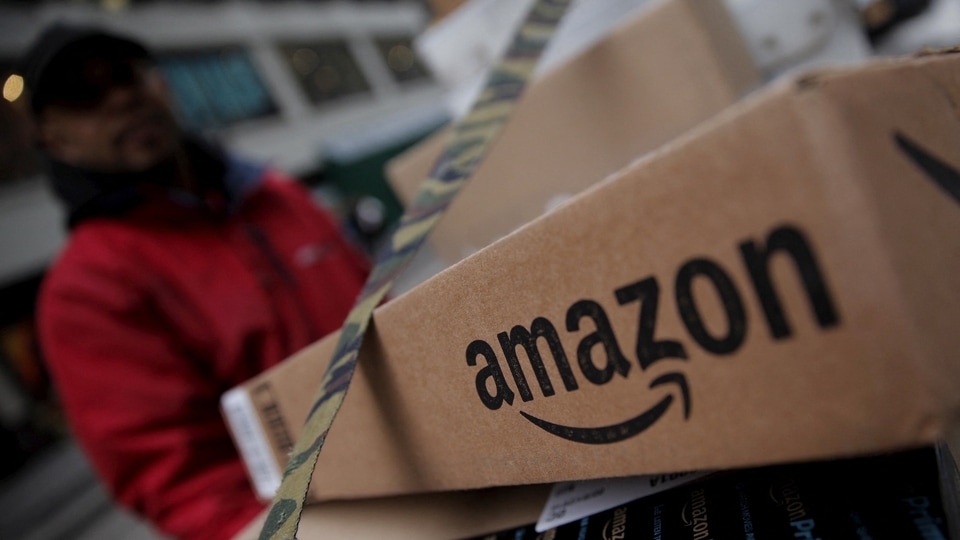What you won’t learn about Amazon from FTC’s new antitrust suit
The Federal Trade Commission’s blockbuster antitrust lawsuit against Amazon.com Inc. alleges a far-reaching monopolistic scheme to stifle competition across online marketplaces and harm US consumers and businesses.



_1642684914466.png)


 View all Images
View all ImagesThe Federal Trade Commission's blockbuster antitrust lawsuit against Amazon.com Inc. alleges a far-reaching monopolistic scheme to stifle competition across online marketplaces and harm US consumers and businesses.
But anyone hoping to immediately drill down into data about Amazon's operations — details about its Prime subscriber base, profits, and internal operations, for example — will be disappointed. The lawsuit filed Tuesday in federal court in Seattle is rife with black redaction bars. That can be typical in the first public version of a case that pulls evidence from business records marked as confidential when investigators receive them.
More information could see daylight as the litigation unfolds, however. The commission has asked a judge to unseal redacted sections within 14 days unless Amazon or another party that provided documents asks to keep them secret; the court hasn't adopted a schedule yet.
Commission spokesperson Douglas Farrar said in a statement that officials “share the frustration” with the amount of information under wraps and didn't believe there were “compelling reasons” to keep much of it sealed.
“We are also eager for more to come into the public domain,” FTC Chair Lina Khan said at a Bloomberg event on Tuesday.
An Amazon spokesperson declined to comment. The company released a statement calling the case “wrong on the facts and the law” and vowing to fight back in court.
Below are highlights of what's being kept out of the public eye for now:
“Project Nessie”
Regulators said that Amazon had developed an algorithm for pricing — codenamed “Project Nessie” — that they contend was a significant piece of the alleged monopoly scheme. The commission said in its complaint that Project Nessie went “a step further” than other “anti-discounting tactics,” that it “belies” the company's claim to be “customer-centric,” and had generated “excess profit.” But the complaint redacted details about the algorithm and what the commission said it had “extracted” from US households.
“Unprecedented scale”
The commission described Amazon's scale as “unprecedented” and “astonishing,” and its third-party marketplace as “enormously profitable,” but redacted a host of data points it had collected to prove that. It blacked out the value of all goods sold in 2021, the profits the company earned from those sales, and what percentage that profit contributed to Amazon's total reported net income that year. The commission said the amount was larger than the gross domestic product of multiple countries — but redacted information about that analysis.
Amazon Prime reach
The commission accused Amazon of forcing sellers to use the company's fulfillment services in order to make their products eligible for Prime's speedy-shipping guarantees, even if sellers preferred to use other services to store and package goods. Regulators said that access to Prime subscribers was “critical” for sellers because the program had “enormous reach” and “blankets” US households, but they blacked out specific numbers to show that. The complaint also redacted how much the average Prime subscriber spends every year compared to non-subscribers, and how much in subscription fees the company earned in 2021 from US customers.
Number of products
The commission wrote that Amazon sold “nearly everything” that might fall into “virtually every conceivable category to U.S. consumers,” but blacked how many “unique products” the company sold in 2020.
Price surveillance
Regulators said that tracking prices across the internet was the “foundation” of the alleged “anti-discounting scheme” and accused Amazon of using that information to “punish” sellers who offered lower prices on other platforms. But sections describing how the company ran those operations are blacked out.
Ad sales
The commission claimed that forcing sellers to pay for advertisements to get optimal placement in the online storefront had been “enormously lucrative” for Amazon and led US ad sales revenue to “skyrocket,” but redacted the amount of those sales in 2015 and 2021. The agency redacted the percentage of shoppers who don't click past the first page of search results, meaning they were more likely to see “sponsored” content as opposed to “organic” hits. The complaint also redacted how much the combined fees that sellers paid, including advertising, contributed to the total revenue Amazon earned from sellers.
Competitor harm
The commission argued that the allegations of monopolistic conduct weren't hypothetical and that Amazon's “anti-discounting algorithm” had successfully stymied competitors from lowering prices. It included examples of real-world harms in the complaint — including one alleged effort by Amazon to “destroy” price competition in 2019 — but redacted the names of those competitors and details.
“Buy Box” sales
The commission accused the company of punishing sellers who offered goods at a lower price outside of Amazon by excluding them from what regulators called the “all-important” Buy Box — a feature that prompts the customer to add an item to their cart or to immediately purchase it. The commission wrote that the feature was important enough that excluding a seller would cause their sales to “tank,” but redacted the percentage of sales that were made using that feature.
Impeding the investigation
The commission accused Amazon of “extensive efforts to impede” its investigation and of hiding internal information. It alleged company executives acted “systematically and intentionally,” but redacted what it was accusing those corporate actors of doing.
“Behind closed doors”
The commission teased evidence about internal discussions among Amazon executives throughout the complaint, but often redacted the substance. In one section, regulators wrote that the company valued “maintaining the perception that it has lower prices than competitors,” while “Behind closed doors, however, Amazon executives actively [REDACTED].”
Catch all the Latest Tech News, Mobile News, Laptop News, Gaming news, Wearables News , How To News, also keep up with us on Whatsapp channel,Twitter, Facebook, Google News, and Instagram. For our latest videos, subscribe to our YouTube channel.






































